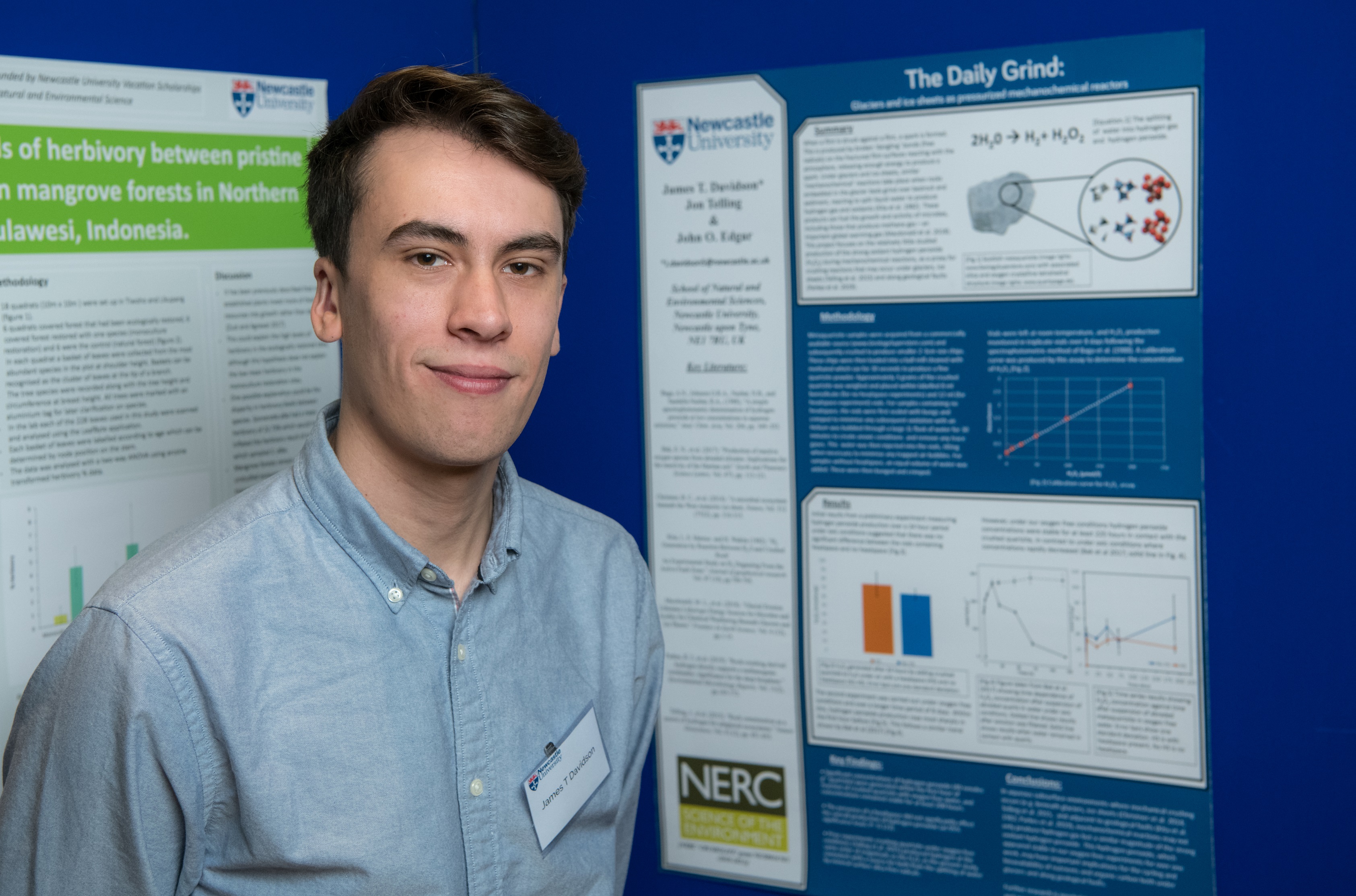2019 participants
 James Davidson
James Davidson
- BSc (Hons) Earth Science
- The Daily Grind: Glaciers and ice sheets as pressurized mechanochemical reactors
When a flint is struck against a flint, a spark is formed. This is produced by broken bonds (free radicals) on the fractured flint surfaces reacting with the atmosphere. Under glaciers, similar ‘mechanochemical’ reactions take place when rocks embedded in the glacier beds grind over bedrock and sediment, reacting with liquid water to split water to produce hydrogen gas and oxidants. Experiments were carried out adding oxygen free water to freshly crushed quartzite (a common rock of West Antarctica). Significant concentrations of hydrogen peroxide (40 nmoles/g quartzite) were generated within the first hour of reaction, and concentrations remained stable for at least 200 hours. This contrasts with previous experiments with oxygenated water, where hydrogen peroxide was quickly lost from solution. These results indicate that rock crushing under oxygen free conditions can facilitate the production of hydrogen peroxide, which can provide a source of oxidants to potentially help support subglacial life.
Funding source: Newcastle University
Project supervisor: Dr Jon Telling
